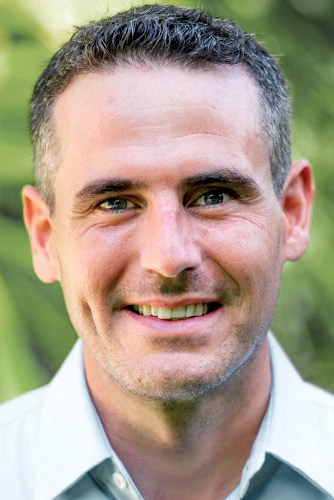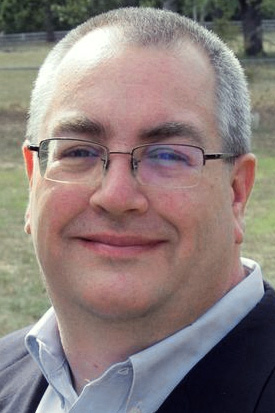

 I've had a number of people ask me about how I think COVID-19 will impact the ISP industry over the next six months. It's an interesting question to consider because there are both positive and negative trends that ISPs need to be concerned about. The chances are that these various trends will affect markets and ISPs differently - making it that much harder for an individual ISP to understand what they are going to see over the next six months. more
I've had a number of people ask me about how I think COVID-19 will impact the ISP industry over the next six months. It's an interesting question to consider because there are both positive and negative trends that ISPs need to be concerned about. The chances are that these various trends will affect markets and ISPs differently - making it that much harder for an individual ISP to understand what they are going to see over the next six months. more
 I stumbled upon a study conducted by Microsoft eons ago back in the paleolithic era of search; 2012... It is about how "premium domains" are perceived by the consumer when seeing them in the search results compared to a lower value "non-premium" domain. I like to use quotations sparingly, but I felt it was necessary because the varying opinions on premium v non-premium domains is a bridge I do not want to cross in this post. more
I stumbled upon a study conducted by Microsoft eons ago back in the paleolithic era of search; 2012... It is about how "premium domains" are perceived by the consumer when seeing them in the search results compared to a lower value "non-premium" domain. I like to use quotations sparingly, but I felt it was necessary because the varying opinions on premium v non-premium domains is a bridge I do not want to cross in this post. more
 An acquaintance said, "We trust our electronic systems to transfer millions of dollars of value; I suspect we will eventually develop schemes we will trust to record and count votes." Unfortunately, this is one of the chronic fallacies that make voting security experts tear their remaining hair out. The security models are entirely different, so what banks do is completely irrelevant to voting. more
An acquaintance said, "We trust our electronic systems to transfer millions of dollars of value; I suspect we will eventually develop schemes we will trust to record and count votes." Unfortunately, this is one of the chronic fallacies that make voting security experts tear their remaining hair out. The security models are entirely different, so what banks do is completely irrelevant to voting. more
 As a search engine optimization (SEO) and domain name consultant, one of the questions I get asked most often about domain names is whether or not the domain name or TLD (Top-Level Domain) matters. Will the domain name ending have an effect on SEO or search engine rankings. Are certain domain name endings preferred by the search engines over other domain name extensions? I decided to answer this question... more
As a search engine optimization (SEO) and domain name consultant, one of the questions I get asked most often about domain names is whether or not the domain name or TLD (Top-Level Domain) matters. Will the domain name ending have an effect on SEO or search engine rankings. Are certain domain name endings preferred by the search engines over other domain name extensions? I decided to answer this question... more
 Nothing can describe the situation the world is living today more accurately than the current aspect of the Dolores Park in the town of San Francisco (USA). These days the green grass shows an abnormal aspect. A series of white circles span all the ground around. It is not the effect of an extra-terrestrial visit, it is just the consequence of the COVID-19 pandemic: the circles mark the safety areas where families can enjoy the park, socially-distanced, under the Sun. more
Nothing can describe the situation the world is living today more accurately than the current aspect of the Dolores Park in the town of San Francisco (USA). These days the green grass shows an abnormal aspect. A series of white circles span all the ground around. It is not the effect of an extra-terrestrial visit, it is just the consequence of the COVID-19 pandemic: the circles mark the safety areas where families can enjoy the park, socially-distanced, under the Sun. more
 Nokia Deepfield is another company that works in the background on the web, and that analyzes data traffic patterns for the big ISPs. Their June 4 report on web traffic reports about the same thing we're hearing from most large ISPs -- the volume of web traffic suddenly shot up since the onset of the pandemic. Nokia Deepfield says that the increase in traffic has settled in at about a 25% increase over pre-COVID levels. more
Nokia Deepfield is another company that works in the background on the web, and that analyzes data traffic patterns for the big ISPs. Their June 4 report on web traffic reports about the same thing we're hearing from most large ISPs -- the volume of web traffic suddenly shot up since the onset of the pandemic. Nokia Deepfield says that the increase in traffic has settled in at about a 25% increase over pre-COVID levels. more
 A few months ago, there was a lot of discussion that despite its claims, Zoom did not actually offer end-to-end encryption. They're in the process of fixing that, which is good, but that raises a deeper question: why trust their code? (To get ahead of myself, this blog post is not about Zoom.) If Zoom has the key but doesn't abuse it, there isn't a problem, right? Let's fast-forward to when they deploy true end-to-end encryption. Why do we trust their code not to leak the secret key? more
A few months ago, there was a lot of discussion that despite its claims, Zoom did not actually offer end-to-end encryption. They're in the process of fixing that, which is good, but that raises a deeper question: why trust their code? (To get ahead of myself, this blog post is not about Zoom.) If Zoom has the key but doesn't abuse it, there isn't a problem, right? Let's fast-forward to when they deploy true end-to-end encryption. Why do we trust their code not to leak the secret key? more
 How are new technologies adopted in the Internet? What drives adoption? What impedes adoption? These were the questions posed at a panel session at the recent EuroDiG workshop in June. In many ways, this is an uncomfortable question for the Internet, given the Internet's uncontrolled runaway success in its first two decades. The IPv4 Internet was deployed about as quickly as capital, expertise, and resources could be bought to bear on the problem... more
How are new technologies adopted in the Internet? What drives adoption? What impedes adoption? These were the questions posed at a panel session at the recent EuroDiG workshop in June. In many ways, this is an uncomfortable question for the Internet, given the Internet's uncontrolled runaway success in its first two decades. The IPv4 Internet was deployed about as quickly as capital, expertise, and resources could be bought to bear on the problem... more
 Trending news and global events impact domain registration behaviors. We observed a slew of coronavirus-themed domain name registrations, for example, as early as January. George Floyd's death, which sparked several Black Lives Matter movements, is no different. Three days after George Floyd died, our data feed started detecting George Floyd-themed domain names... We retrieved all domain names that contain the strings "eorge," and "lackliv" from 28 May to 7 June and found 402. more
Trending news and global events impact domain registration behaviors. We observed a slew of coronavirus-themed domain name registrations, for example, as early as January. George Floyd's death, which sparked several Black Lives Matter movements, is no different. Three days after George Floyd died, our data feed started detecting George Floyd-themed domain names... We retrieved all domain names that contain the strings "eorge," and "lackliv" from 28 May to 7 June and found 402. more
 The Federal Communications Commission (FCC) has adopted procedures for Phase I of the Rural Digital Opportunity Fund (RDOF) auction, which will award up to $16 billion in support over ten years for the deployment of fixed broadband networks to homes and businesses in census tracks that are unserved by voice and broadband with download speeds of at least 25 Mbps. more
The Federal Communications Commission (FCC) has adopted procedures for Phase I of the Rural Digital Opportunity Fund (RDOF) auction, which will award up to $16 billion in support over ten years for the deployment of fixed broadband networks to homes and businesses in census tracks that are unserved by voice and broadband with download speeds of at least 25 Mbps. more
 One thing I've noticed recently is that a lot of people are climbing on board the idea of building better broadband to rural America. Many people seem to think that the FCC can somehow act to fix a lot of the shortcomings of rural broadband - but in doing so, they have missed the entire point of what the FCC calls 'light-touch' regulation - because, from a practical perspective, broadband is not regulated at all. more
One thing I've noticed recently is that a lot of people are climbing on board the idea of building better broadband to rural America. Many people seem to think that the FCC can somehow act to fix a lot of the shortcomings of rural broadband - but in doing so, they have missed the entire point of what the FCC calls 'light-touch' regulation - because, from a practical perspective, broadband is not regulated at all. more
 When UN Secretary-General Antonio Guterres announced in January 2020 that he was preparing a global "roadmap for digital cooperation," he had no idea that six months later, the world had made a quantum leap into the digital age. Home office, distance learning, online shopping, and video conferencing have been around for a long time, but the standstill of the real world during the pandemic has led to an unexpected expansion of the virtual world. more
When UN Secretary-General Antonio Guterres announced in January 2020 that he was preparing a global "roadmap for digital cooperation," he had no idea that six months later, the world had made a quantum leap into the digital age. Home office, distance learning, online shopping, and video conferencing have been around for a long time, but the standstill of the real world during the pandemic has led to an unexpected expansion of the virtual world. more
 Does the ICANN Board putting its thumb on the scale, change the status quo assumption of a Policy Development Process (PDP)? The primary assumption of most PDPs is that, in the absence of consensus for change, the status quo remains. Otherwise, Policy would be made by fiat by the PDP's Chair or Co-Chairs and there would be a mad rush to occupy those unpaid, thankless positions. more
Does the ICANN Board putting its thumb on the scale, change the status quo assumption of a Policy Development Process (PDP)? The primary assumption of most PDPs is that, in the absence of consensus for change, the status quo remains. Otherwise, Policy would be made by fiat by the PDP's Chair or Co-Chairs and there would be a mad rush to occupy those unpaid, thankless positions. more
 The Registration Operations Workshop (ROW) was conceived as an informal industry conference that would provide a forum for discussion of the technical aspects of registration operations in the domain name system and IP addressing. The 9th ROW will be held online on Tuesday, June 16th, 2020 at 13h00-16h00 UTC. more
The Registration Operations Workshop (ROW) was conceived as an informal industry conference that would provide a forum for discussion of the technical aspects of registration operations in the domain name system and IP addressing. The 9th ROW will be held online on Tuesday, June 16th, 2020 at 13h00-16h00 UTC. more
 The bottom line is that success is not guaranteed, but neither is failure -- there is a non-zero probability of success. On May 26th, SpaceX applied for permission to launch 30,000 "second-generation" Starlink broadband Internet satellites. (Note that the software on Starlink satellites is updated about once a week). The application narrative states that the second-generation satellites will be configured... more
The bottom line is that success is not guaranteed, but neither is failure -- there is a non-zero probability of success. On May 26th, SpaceX applied for permission to launch 30,000 "second-generation" Starlink broadband Internet satellites. (Note that the software on Starlink satellites is updated about once a week). The application narrative states that the second-generation satellites will be configured... more
Sponsored byVerisign

Sponsored byRadix

Sponsored byDNIB.com

Sponsored byCSC

Sponsored byWhoisXML API

Sponsored byVerisign

Sponsored byIPv4.Global
